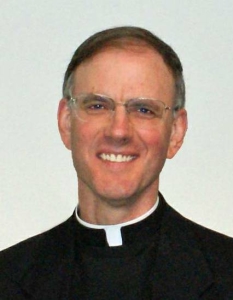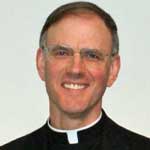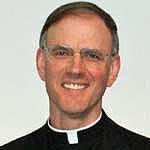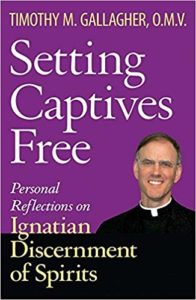Podcast: Play in new window | Download (Duration: 31:16 — 21.5MB) | Embed
Subscribe: Apple Podcasts | Spotify | Amazon Music | Android | Pandora | iHeartRadio | JioSaavn | Podchaser | Gaana | Podcast Index | Email | TuneIn | Deezer | Anghami | RSS | More

Episode 3 -The First Rule:
In the persons who go from mortal sin to mortal sin, the enemy is commonly used to propose to them apparent pleasures, making them imagine sensual delights and pleasures in order to hold them more and make them grow in their vices and sins. In these persons the good spirit uses the opposite method, pricking them and biting their consciences through the process of reason.
Fr. Timothy Gallagher highlights the spiritual journey of St. Augustine as an example of the first rule of the Spiritual Exercises of St. Ignatius. Augustine’s story illustrates the battle between sensual temptations and moral conscience. As a young man, Augustine indulged in sensual pleasures, leading a life far from God. This period was marked by restlessness and moral conflict.
Fr. Gallagher points out that the “enemy” tempts with apparent pleasures, while the “good spirit” strikes back by stirring the conscience. Augustine’s moment of conversion in a garden, influenced by the Holy Spirit and the words of Scripture, exemplifies this struggle and transformation. Fr. Gallagher stresses that understanding this spiritual dynamic is essential to recognizing and overcoming temptations, leading to deeper communion with God. The dialogue underscores the importance of awareness and action in the spiritual life, especially in today’s media-saturated culture.
Discerning Hearts reflection questions for this episode:
- Contrasting Temptations and Conscience: Reflect on your experiences with temptation. How do you recognize when you are being drawn toward ‘earthly pleasures’? How does your faith-informed conscience respond to these temptations?
- St. Augustine’s Transformation: Consider St. Augustine’s spiritual journey. What aspects of his story resonate with your own spiritual experiences? Have there been moments in your life where you felt a significant shift in your faith or moral understanding?
- Role of Media and Modern Influences: In today’s world, filled with various forms of media, how do you discern which influences bring you closer to God and which ones draw you away? What steps can you take to align your daily media engagement with your Catholic values?
- Recognizing the ‘Good Spirit’: How do you identify the action of the ‘good spirit’ in your life? Can you recall instances where you felt your conscience was actively guiding you back to the right path?
- Spiritual Exercises of St. Ignatius: How familiar are you with the Spiritual Exercises of St. Ignatius? Considering the insights from the discussion, how might these exercises benefit your spiritual growth, especially in understanding the interplay between temptation and conscience?
 The Discernment of Spirits: Setting the Captives Free – Serves as an introduction to the Spiritual Exercises of St. Ignatius of Loyola
The Discernment of Spirits: Setting the Captives Free – Serves as an introduction to the Spiritual Exercises of St. Ignatius of Loyola
The 14 Rules for Discerning Spirits –
“The Different Movements Which Are Caused In The Soul”
as outlined by St. Ignatius of Loyola can be found here
Father Timothy M. Gallagher, O.M.V., was ordained in 1979 as a member of the Oblates of the Virgin Mary, a religious community dedicated to retreats and spiritual formation according to the Spiritual Exercises of St. Ignatius. Fr. Gallagher is featured on the EWTN series “Living the Discerning Life: The Spiritual Teachings of St. Ignatius of Loyola”.
For more information on how to obtain copies of Fr. Gallaghers’s various books and audio which are available for purchase, please visit his website: www.frtimothygallagher.org








